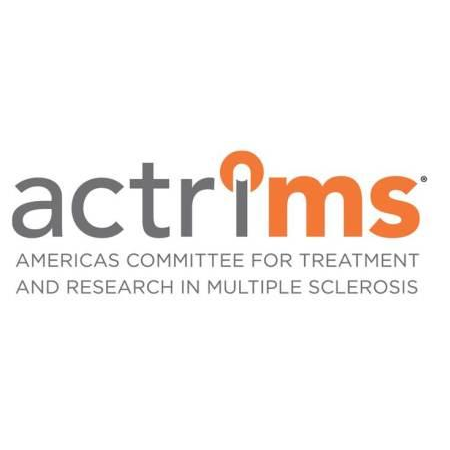
- April 2023
- Volume 6
- Issue 2
High Proportion of Patients Maintained No Evidence of Disease Activity With Ublituximab

Majority of patients with relapsing multiple sclerosis demonstrated achieving and maintaining no evidence disease activity after being treated with ublituximab.
New results from a pooled post-hoc analysis of the phase 3 ULTIMATE 1 and 2 studies (NCT03277261; NCT03277248) showed that a majority of patients with relapsing multiple sclerosis (MS) achieved and maintained no evidence of disease activity (NEDA) following treatment with ublituximab (Briumvi; TG Therapeutics).1
More than half of patients (53.3%) treated with ublituximab achieved NEDA during weeks 0-24, and slightly less than half (45.2%) of participants maintained NEDA during weeks 24-96. Notably, 36.9% of participants had evidence disease activity (EDA) during weeks 0-24 but NEDA during weeks 24-96. Hence, the total proportion of participants with NEDA increased to 82.1% for weeks 24-96.
Approximately 6 months after treatment, 92.4% of patients achieved NEDA during weeks 24-48. In addition, 83.5% of patients maintained NEDA during weeks 48-96. Also, 4.8% of patients had EDA during weeks 24-48 but achieved NEDA during weeks 48-96, raising the total number of participants who achieved NEDA during this time to 88.2%.
The results were presented as a poster at the annual
Ublituximab, an investigational glycoengineering anti-CD20 monoclonal antibody, was
A similar post-hoc analysis from
At baseline, 2.4% and 17.8% of patients treated with ublituximab tested positive for NAbs and ADAs which increased to 6.4% and 86.5% at any time postbaseline. However, it was noted that testing positive at baseline did not necessarily correlate with testing positive at any postbaseline time points. At weeks 24, 48, 72, and 96, presence of TE-NAbs were observed in 4.3%, 3.4%, 1.1%, and 1.1% of patients, respectively. Post-baseline, the annualized relapse rates (ARRs) were 0.03 in NAb-positive individuals (n = 30) and 0.11 in NAb-negative individuals (n = 500). Furthermore, the ARRs were 0.10 in TE-ADA-positive patients (n = 434) and 0.12 in TE-ADA-negative patients (n = 100).
TE-ADAs generally were transient with no observable impact on the safety or efficacy of ublituximab. Patients that were TE-ADA-positive, 48.4% had all grade infusion-related reactions (IRRs) and 3.0% had at least a Grade 3 IRR. In comparison, 42.0% of the TE-ADA-negative group had an all-grade IRR occur, whereas 2.0% reported at least Grade 3 IRRs. Although not significant statistically, all grade IRR adverse events that occurred with greater than a 2% frequency in TE-ADA-positive vs TE-ADA-negative patients included pyrexia (10.1% vs 7.0%), chills (8.3% vs 6.0%), nausea (3.7% vs 1.0%), and lymphocyte decreases (3.2% vs 1.0%).
Original data from the ULTIMATE studies showed ublituximab reduced ARR and MRI parameters better than that of teriflunomide. Treatment with ublituximab resulted in an ARR of 0.076 in ULTIMATE 1 compared to 0.188 for the teriflunomide-treated group, a relative reduction of 60% (ARR ratio, 0.406; 95% CI, 0.268-0.615; P <.001). Similarly, in ULTIMATE 2, ARRs are 96 weeks were 0.091 and 0.178 in the ublituximab and teriflunomide groups, respectively, equating to a 49% relative reduction (ARR ratio, 0.509; 95% CI, 0.330-0.784; P = .0022).5
REFERENCES
1. Alvarez E, Wray S, Robertson D, et al. Onset and Maintenance of No Evidence of Disease Activity With Ublituximab: Analyses of the Phase 3 ULTIMATE I and II Studies in Participants With Relapsing Multiple Sclerosis. Presented at ACTRIMS Forum 2023; February 23-25; San Diego, California. Abstract P082.
2. TG Therapeutics Announces FDA Approval of BRIUMVI™ (ublituximab-xiiy). News release. TG Therapeutics. December 28, 2022. Accessed February 22, 2023. https://ir.tgtherapeutics.com/news-releases/news-release-details/tg-therapeutics-announces-fda-approval-briumvitm-ublituximab
3. TG Therapeutics announces FDA extension of BLA PDUFA date for ublituximab to treat patients with RMS. News release. TG Therapeutics. May 31, 2022. Accessed February 22, 2023. https://ir.tgtherapeutics.com/news-releases/news-release-details/tg-therapeutics-announces-fda-extension-bla-pdufa-date#:~:text=(NASDAQ%3A%20TGTX)%2C%20today,of%20multiple%20sclerosis%20(RMS).
4. Alvarez E, Steinman L, Fox E, et al. Neutralizing antibodies and antidrug antidodies in the ublituximab phase 3 ULTIMATE 1 and 2 studies in relapsing multiple sclerosis. Presented at ACTRIMS Forum 2022; February 24-26; West Palm Beach, FL. Abstract P103
5. TG Therapeutics announces presentation of data from the ULTIMATE 1 & 2 phase 3 trials of ublituximab in multiple sclerosis at 7th Congress of the European Academy of Neurology. News release. TG Therapeutics. June 18, 2021. Accessed February 23, 2023. https://www.biospace.com/article/releases/tg-therapeutics-announces-presentation-of-data-from-the-ultimate-i-and-ii-phase-3-trials-of-ublituximab-in-multiple-sclerosis-at-7th-congress-of-the-european-academy-of-neurology/
Articles in this issue
almost 3 years ago
Promising Disease-Modifying Therapies in Parkinson Diseasealmost 3 years ago
Read All About It: How On-Demand Therapy Has Changed the PD Landscapealmost 3 years ago
Managing Nonmotor Symptoms: Psychosis in Parkinson Diseasealmost 3 years ago
Therapeutic Potential of IGF-1 and MECP2 in Rett Syndromealmost 3 years ago
Therapeutics Aim at Modifying Alzheimer Diseasealmost 3 years ago
Searching for the PD Holy Grailalmost 3 years ago
FDA Accepts Supplemental BLA for Traditional Approval of LecanemabNewsletter
Keep your finger on the pulse of neurology—subscribe to NeurologyLive for expert interviews, new data, and breakthrough treatment updates.










